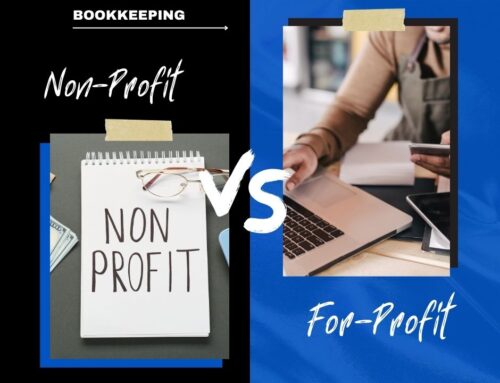There are a variety of bookkeeping differences when dealing with employees or independent contractors. Laura Glennon, founder of Navitance, discusses the different things companies must consider to ensure appropriate tax laws are followed. Listen or read more to find out about bookkeeping for employees vs. independent contractors.
John Maher: Hi, I’m John Maher. I’m here today with Laura Glennon, founder of Navitance, which provides a full array of financial accounting, bookkeeping, outsourced CFO consulting, and financial restructuring advisory services for nonprofit organizations, startups, and established businesses. Welcome, Laura.
Laura Glennon: Thank you for having me, John.
John: Sure. Laura, today we’re talking about bookkeeping for employees versus independent contractors. What’s the difference between an employee and a subcontractor, or sometimes called an independent contractor?
Laura: They [are] different classifications of workers for your company. An employee is a person who goes on payroll, needs to complete some hiring documentation [on] day one, [has] an I-9 form to make sure that they’re eligible to work in the United States, and a W-4, and usually a voided check from their checking account. They are set up on payroll and the company then pays payroll taxes on that employee’s benefit. Social Security and Medicare are paid. As you know, there’s the employer part and the employee part. The employer pays half of those taxes.
An independent contractor is a worker who does not go on payroll. There’s a big misconception, though, about independent contractors. People think that if you just hire somebody for a day or week or as a casual … they’re just an independent contractor. It really boils down to a lengthy checklist from the IRS where you have to evaluate control. If you’re telling the person to come in [at a] certain time, you’re using your equipment, they’re wearing your company logo, it boils down to control.
Independent contractors, you hire them, they come with their skill set, you don’t control them. They come and they know what they’re doing. They may use your equipment. That’s not prohibited. When you compensate them, you’re compensating them for their hourly rate that’s agreed upon ahead of time and the number of hours and it’s a gross payment. At the end of the year, you would issue a 1099 to an unincorporated independent contractor.
An employee at the end of the year, you issue a W-2. You’re also paying things like workers’ compensation insurance, state and federal unemployment tax on an employee. Those do not come into play with an independent contractor.
John: An independent contractor, when they get that 1099 that tells them how much money they made from the company that they did some work for, that independent contractor is in charge of paying their own taxes on that and all of those things that you’ve said that an employer of an employee would have to pay for that employee. It’s a totally different thing.
Laura: That’s right. It’s recommended that independent contractors know to set aside a reserve account for taxes and work with their own tax accountant and develop quarterly estimated tax payments so that they don’t become banned come April 15th the following year like, “Oh, I just made $50,000 from this company, and I didn’t expect it all.”
John: Expect it all. Yes.
Laura: Expect it all. Right.
John: Now, I don’t have the money to pay those taxes.
Laura: Right. Exactly. Yes.
Regulations Regarding Employee Classifications
John: What are some of the reasons why it’s really important to know about these different regulations concerning employee classification between employees and independent contractors?
Laura: It’s a great question, John. There are companies — I wrote a white paper years ago about this. Companies as big as FedEx had civil lawsuits brought against them for hiring independent contractors and not paying their employment taxes. They were driving around in FedEx trucks, wearing FedEx shirts. Even construction companies, where the person would then become injured on the job and separate. The IRS wants to make sure that people are compensated the proper way and that employers are paying the proper taxes.
John: Is it helpful to hire a human resources company to help sort out all of these issues? It seems like a lot to deal with, or maybe I need an attorney to handle this. Who takes care of this for me?
Laura: I would recommend a human resource expert. They are up on all the laws, the Department of Labor regulations, they would help even maybe clarify. If there is a case where someone wasn’t sure if they should hire that person as an employee or an independent contractor, that human resources expert could maybe go through that checklist with them from the IRS website, and really determine what’s the best for the company and for the individual.
John: Okay. The thing to remember here is just when you’re hiring people to do work for your company, just be really sure that you’ve classified them the right way, whether they’re an employee or an independent contractor. You want to make sure that that’s all taken care of beforehand so that at the end of the year you don’t have any of these issues.
Laura: That’s right. Some companies go as far as asking their independent contractors to form legal entities, like a limited liability company, or an S-Corp to make it crystal clear that that person providing the independent contracting services is truly independent. Those with websites and they’re out marketing their services to other firms, it becomes more and more obvious that that person really is a contractor. If not all those conditions are satisfied, then it gets a little muddied.
John: Right. Where it’s just an individual and maybe you’re the only company that they worked for all year long, it becomes really difficult.
Laura: Right. Then you don’t really want to be raising red flags.
John: What are some of the issues that could happen? Are there penalties if you have people that you’ve hired as independent contractors, but maybe they really should have been employees, what would happen?
Laura: It did happen to two of my clients in the past. The IRS became involved. The client was working with his tax accountant to resolve the issue and the IRS is expecting back taxes. That would be social security and medicare on that employee for all of those years. It becomes quite a very large financial burden, and you just don’t want yourself in that situation.
John: All right. That’s really informative, Laura. Thanks again for speaking with me today.
Laura: Thank you.
John: For more information, visit the Navitance website at navitance.com or call 978-809-3282.




